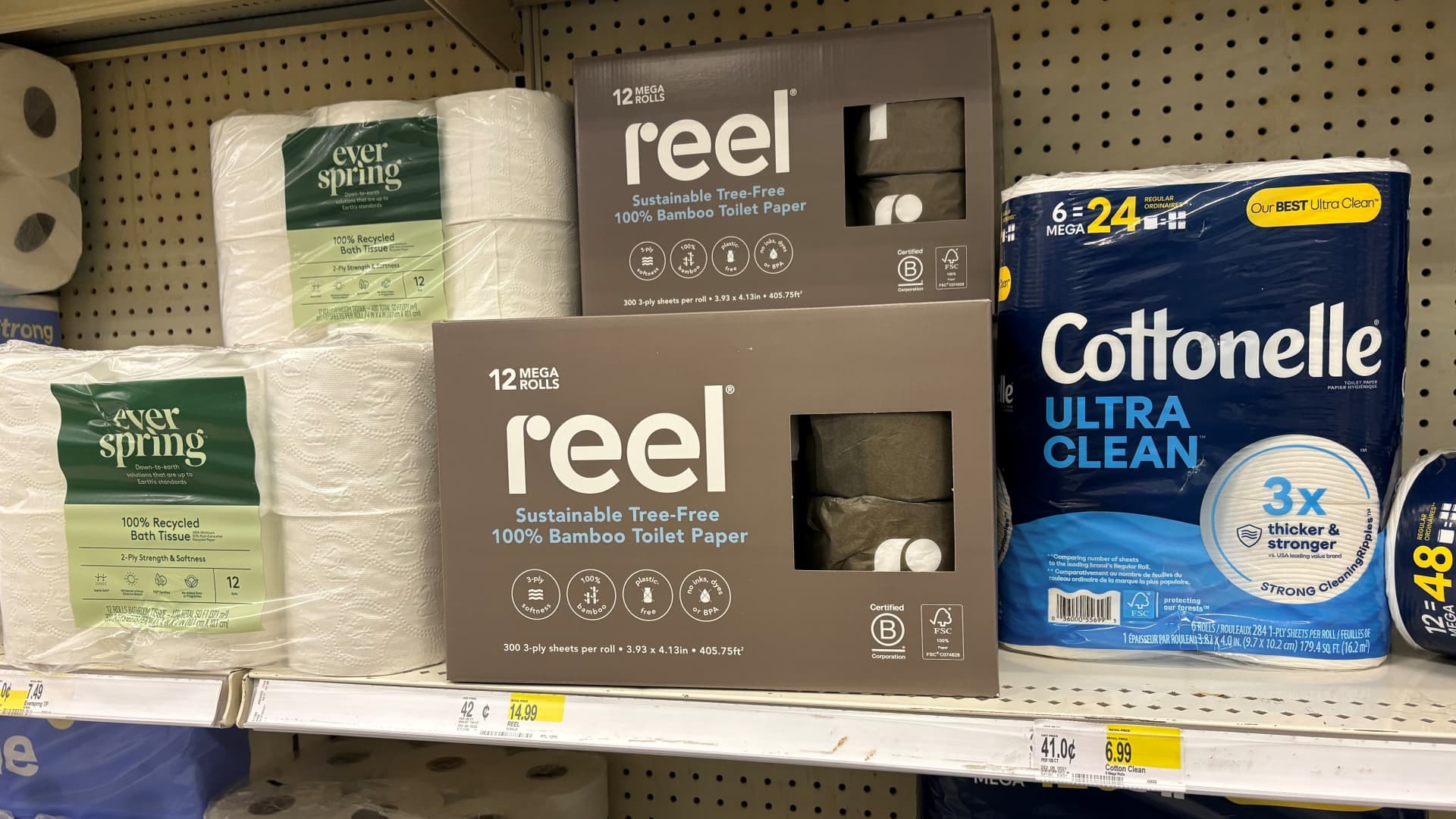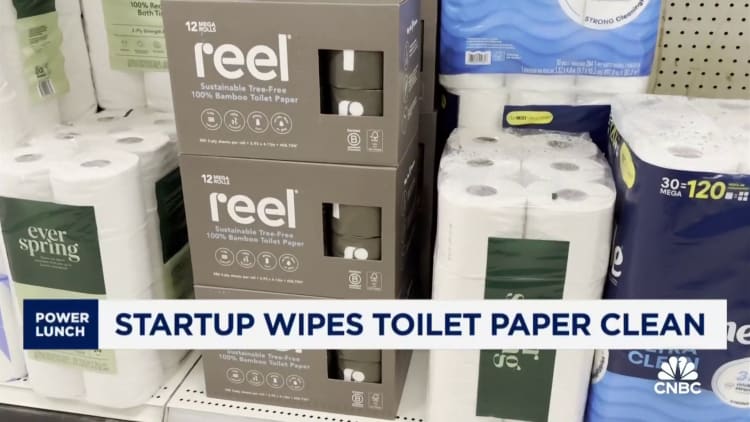Eco-friendly startups are turning to treeless toilet paper


Toilet paper wipes out thousands of acres of Canadian forest each year, and demand for it is growing. So too is the demand for a more sustainable alternative, and the competition is on a roll.
Toilet paper is most often made of wood pulp, which, in the U.S., is generally sourced from Canada. Some of the most popular toilet paper brands score an F on sustainability from the National Resources Defense Council because they are made almost entirely from forest fiber.
New products from Whole Foods, Green Forest, Who Gives a Crap and a startup called Reel Paper, are transforming an industry that is ripe for disruption. Reel Paper uses bamboo instead of wood pulp. Bamboo is a grass, not a tree
“It is one of the fastest growing plants in the world. When you cut it down, it regenerates from the same root structure, and you can harvest that every three years, so we’ve found it’s the best sustainable resource to create high-quality paper good items,” said Reel Paper CEO David VanHimbergen.
He added bamboo’s longer fibers make it ideal for balancing softness and strength.
“It’s a small change that, as people can transition to something more sustainable, can have a meaningful impact because of the frequency of usage,” he added.
Consumer demand for environmentally cleaner products is rising fast. That has investors more interested in some of these startups and their potential payoff.
“There are some major companies playing, from Kimberly Clark to P&G, and others. Certainly, when we invest, we say, hey, is this a business that one of those players one day may want to buy?” said Andrew Bluestein, co-founder and managing partner of Bluestein Ventures, an investor in Reel Paper.
In addition to Bluestein, Reel Paper is backed by Squared Circles, Montage Ventures, Great Oaks Venture Capital, Trousdale Ventures, and Mandell Ventures. It has raised $14 million in funding.
Reel Paper currently ships its bamboo to the U.S. from China, burning fossil fuels in the process, so the company purchases carbon offsets. VanHimbergen says bamboo farms are now being developed out of degraded sugar plantations in Central America. The hope is they’ll soon get it from a closer source.
One of the biggest competitors to the sustainable toilet paper market is the growing market for bidets. Some argue that bidets use more water, and can therefore be less eco-friendly in drought-stricken areas. But toilet paper is also made with water, far more than is used in a bidet. The answer seems to be that if you live in an area where water is plentiful, a bidet is best. If you live in a drought-stricken area, a sustainable toilet tissue is a better option.